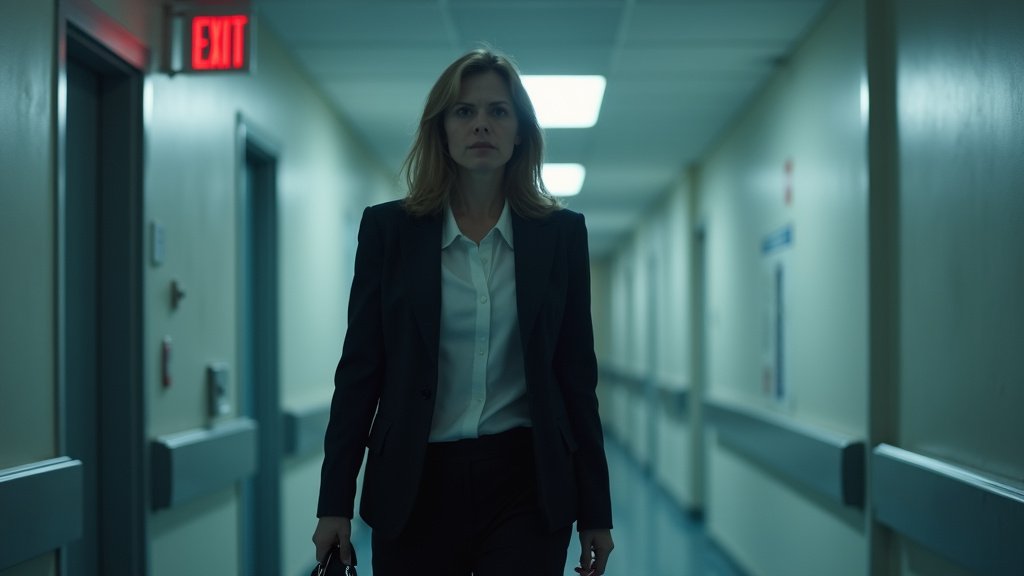The U.S. Centers for Disease Control and Prevention (CDC) is grappling with unprecedented leadership turmoil, marked by the abrupt ouster of its director, Susan Monarez, and the subsequent resignation of several senior officials. Jim O’Neill, a deputy secretary at the Department of Health and Human Services (HHS), has been appointed as the new acting director, stepping into a role amid deep divisions over scientific directives and vaccine policy.
This dramatic shake-up has triggered widespread alarm among public health experts and bipartisan concern, as it signals a significant shift in the agency’s operational philosophy, heavily influenced by HHS Secretary Robert F. Kennedy Jr.’s agenda.
Director Ousted Amidst Policy Clashes
Susan Monarez, a microbiologist confirmed as the CDC’s 21st director in July 2025, was removed from her position less than a month into her tenure. Sources close to the situation indicate that Monarez was ousted following significant disagreements with HHS Secretary Robert F. Kennedy Jr. regarding vaccine policy. Her legal team asserts that Monarez was targeted for refusing to endorse what her attorneys described as “unscientific, reckless directives” and for resisting pressure to fire dedicated health experts. The White House, through spokesperson Kush Desai, stated that Monarez was “not aligned with the President’s agenda of Making America Healthy Again” and claimed she refused to resign. However, Monarez’s legal representatives maintain that only the President has the authority to dismiss her, challenging the legality of the White House staff’s action.
O’Neill, who now leads the nation’s premier public health agency, lacks a medical background. He previously served as a Bush administration health official and an advisor to investor Peter Thiel. His appointment is seen by many as consolidating Secretary Kennedy’s influence over the agency’s direction, particularly concerning vaccine recommendations.
Mass Resignations Signal Deep Discontent
The turmoil escalated with the resignation of at least four high-profile CDC leaders: Dr. Debra Houry (Chief Medical Officer and Deputy Director), Dr. Demetre Daskalakis (Director of the National Center for Immunization and Respiratory Diseases), Dr. Daniel Jernigan (Director of the National Center for Emerging and Zoonotic Infectious Diseases), and Jennifer Layden (Director of the Office of Public Health Data, Surveillance, and Technology). These departures, framed as protests against the agency’s new direction, underscore a profound ideological rift within the CDC. Resignation letters and public statements from these officials cited concerns over the spread of misinformation, political interference in scientific work, budget cuts, and a broader undermining of scientific integrity.
Dr. Houry, in her resignation, stated, “I am not able to serve in this role any longer because of the ongoing weaponization of public health.” She and other departing officials expressed fears that children could be harmed by decisions made around vaccine policies without proper scientific backing. The sentiment among many exiting leaders was that they could no longer serve with integrity in an environment where science was being politicized.
RFK Jr.’s Agenda and Bipartisan Alarm
Health Secretary Robert F. Kennedy Jr. has been a vocal critic of the CDC’s existing vaccine policies and response to public health crises, including the COVID-19 pandemic. He has openly advocated for reviewing and potentially revising vaccine recommendations, a stance that has drawn criticism from medical professionals and public health advocates alike. Kennedy’s efforts to reshape the CDC’s vaccine advisory committee by appointing vaccine skeptics have further fueled concerns. He has also spoken about the need to “change the institutional culture” at the CDC, indicating a broader overhaul driven by his administration’s priorities.
These developments have not gone unnoticed on Capitol Hill. Senator Bill Cassidy (R-Louisiana), who previously supported Monarez’s nomination, has called for congressional oversight, questioning the scientific process behind upcoming advisory committee meetings. Several Democratic lawmakers have also voiced alarm, with some calling for Kennedy’s removal. This bipartisan unease highlights the significant public and political scrutiny the CDC now faces.
Broader Implications and Editorial Concerns
The upheaval at the CDC carries significant implications for national public health preparedness and scientific trust. Experts warn that the loss of experienced leaders weakens the nation’s ability to track diseases, respond to outbreaks, and maintain the credibility of public health guidance. The recent measles outbreak in West Texas, where health officials reportedly struggled to secure adequate help from the CDC, serves as a stark reminder of the agency’s critical role. In this context, the news coverage and subsequent editorial commentary across various news outlets, including those in Texas, reflect a shared apprehension about the politicization of science.
Many medical organizations, such as the American Medical Association and the Infectious Diseases Society of America, have expressed deep concern. They emphasize that the CDC’s credibility and leadership are more essential than ever, especially as the nation navigates ongoing public health threats and prepares for seasonal viruses. The destabilization, they argue, leaves the country highly susceptible to future health crises, jeopardizing the safety and well-being of the American people. The news of these changes has prompted widespread editorial discussion, questioning whether the CDC can maintain its evidence-based mission under the current administration’s influence.
Future Uncertainty for the Agency
With a new acting director at the helm and several key leadership positions vacant, the CDC faces a period of profound uncertainty. The organization’s capacity to fulfill its mission of protecting public health is under intense scrutiny. As the agency navigures these internal challenges, the broader public health community and lawmakers will be watching closely to see if scientific integrity can be restored and public trust re-established.






